
Medievalist and @HistoryToday columnist, writing about seasonal customs, folklore, Anglo-Saxon history, literature and language.
How to get URL link on X (Twitter) App

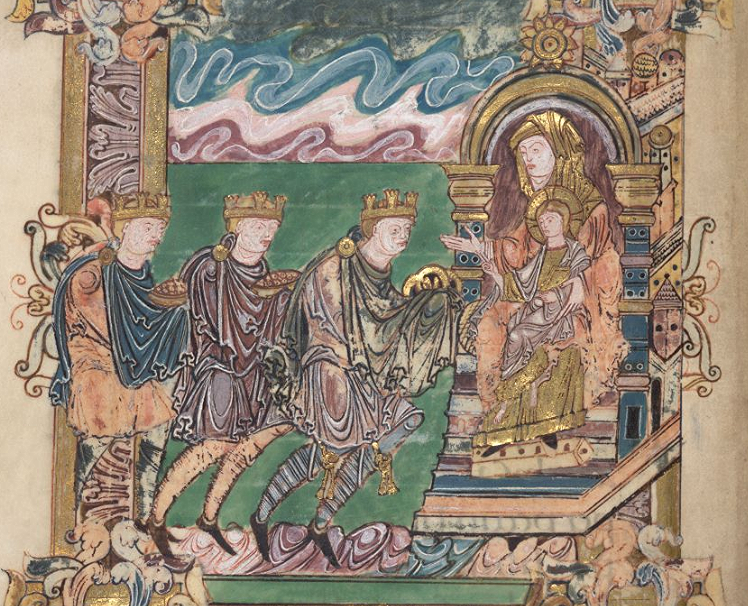
 The visit of the Magi in a gloriously colourful Anglo-Saxon manuscript which once belonged to Robert of Jumièges, archbishop of Canterbury under Edward the Confessor.
The visit of the Magi in a gloriously colourful Anglo-Saxon manuscript which once belonged to Robert of Jumièges, archbishop of Canterbury under Edward the Confessor.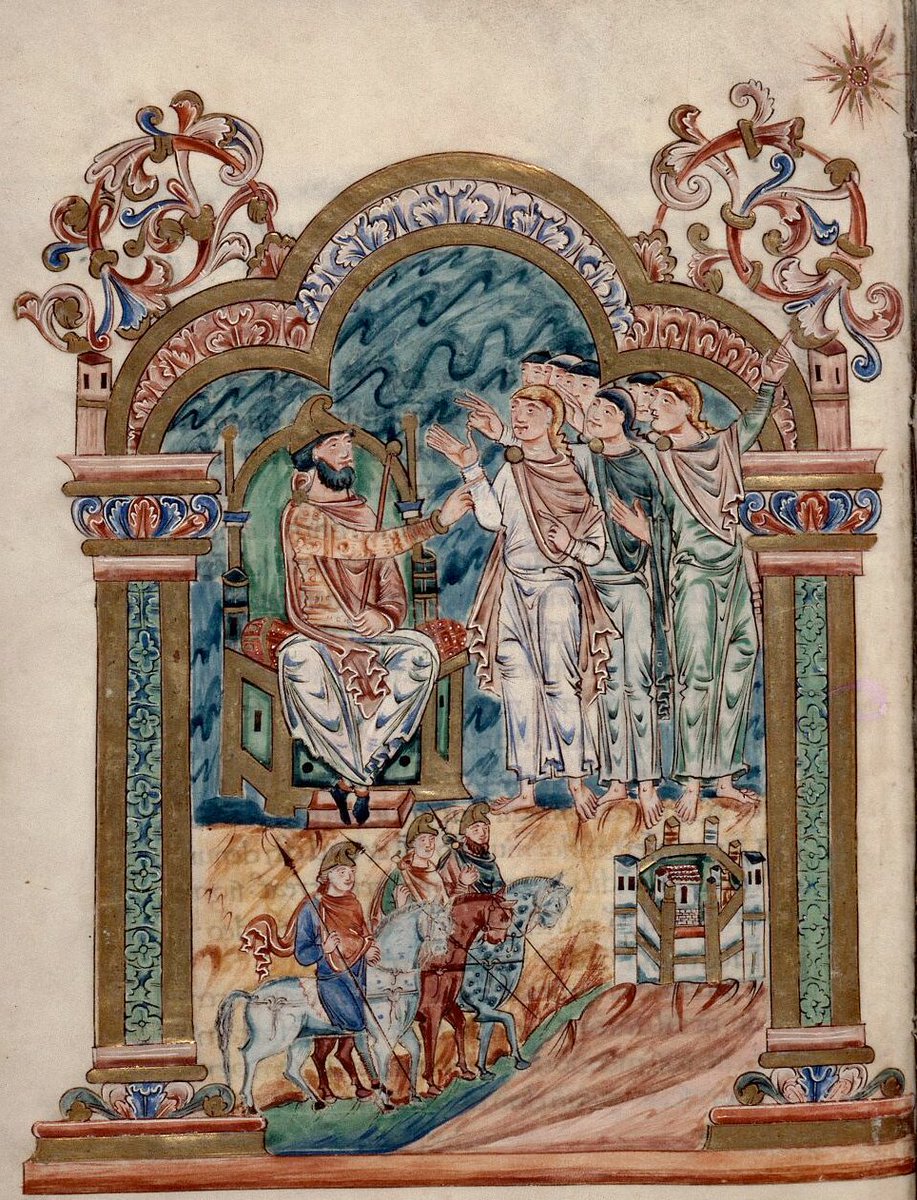
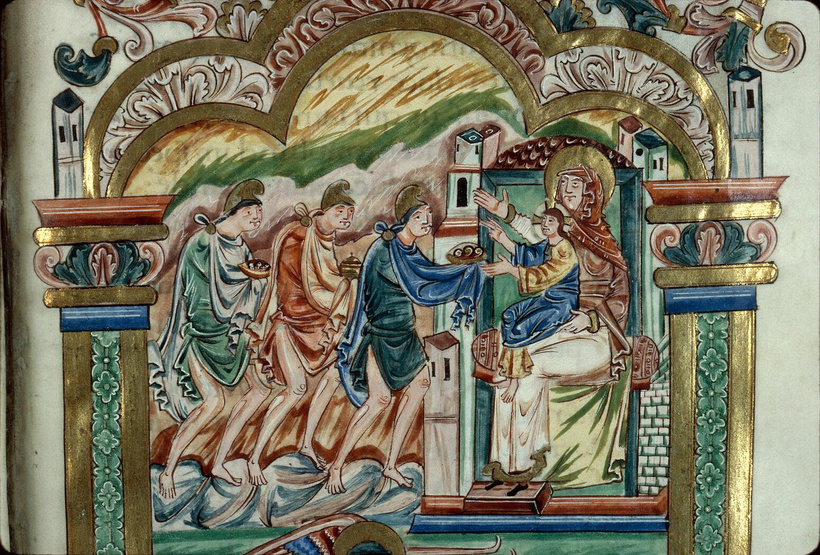
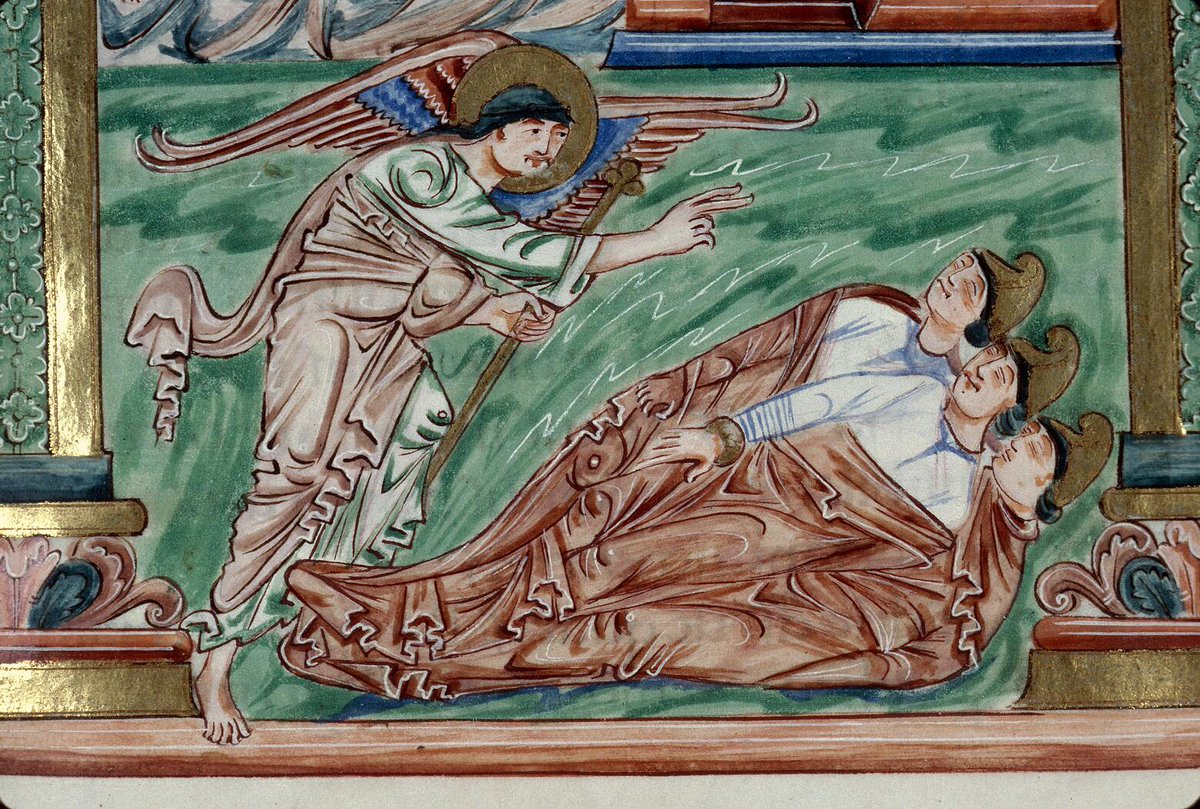
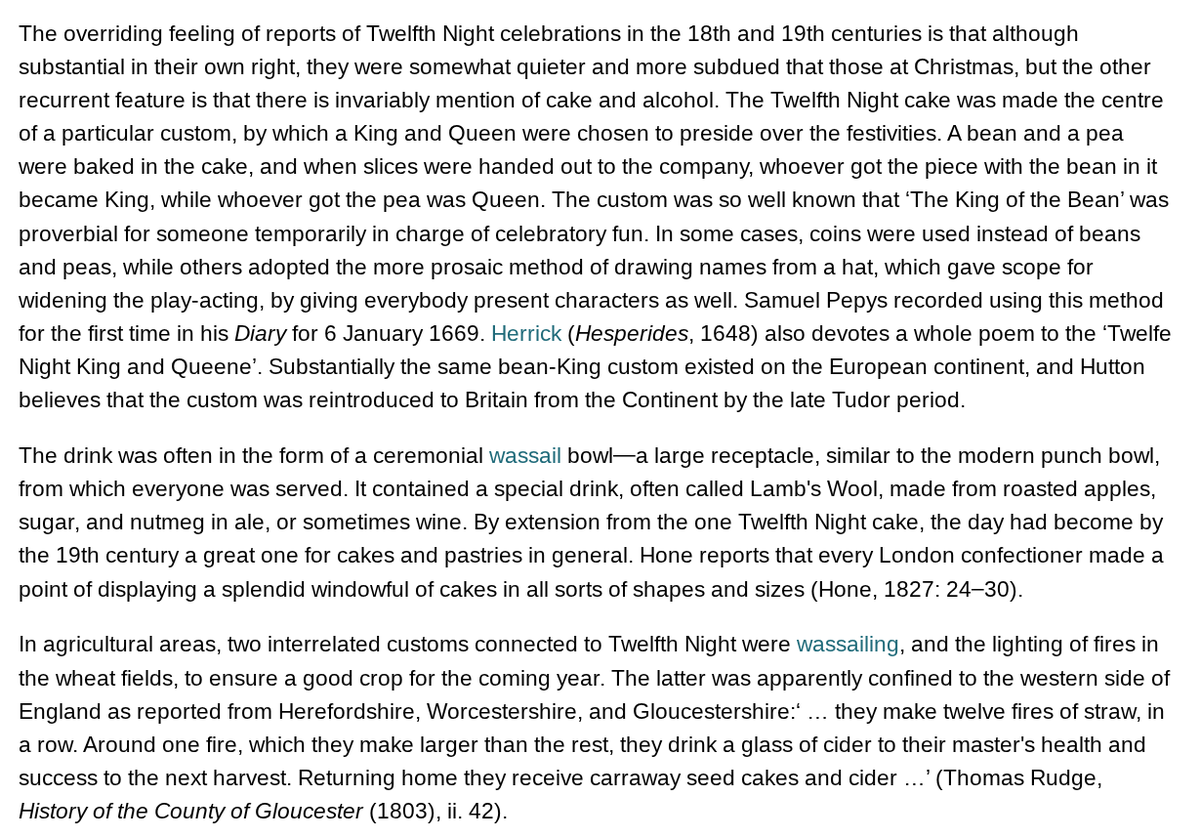

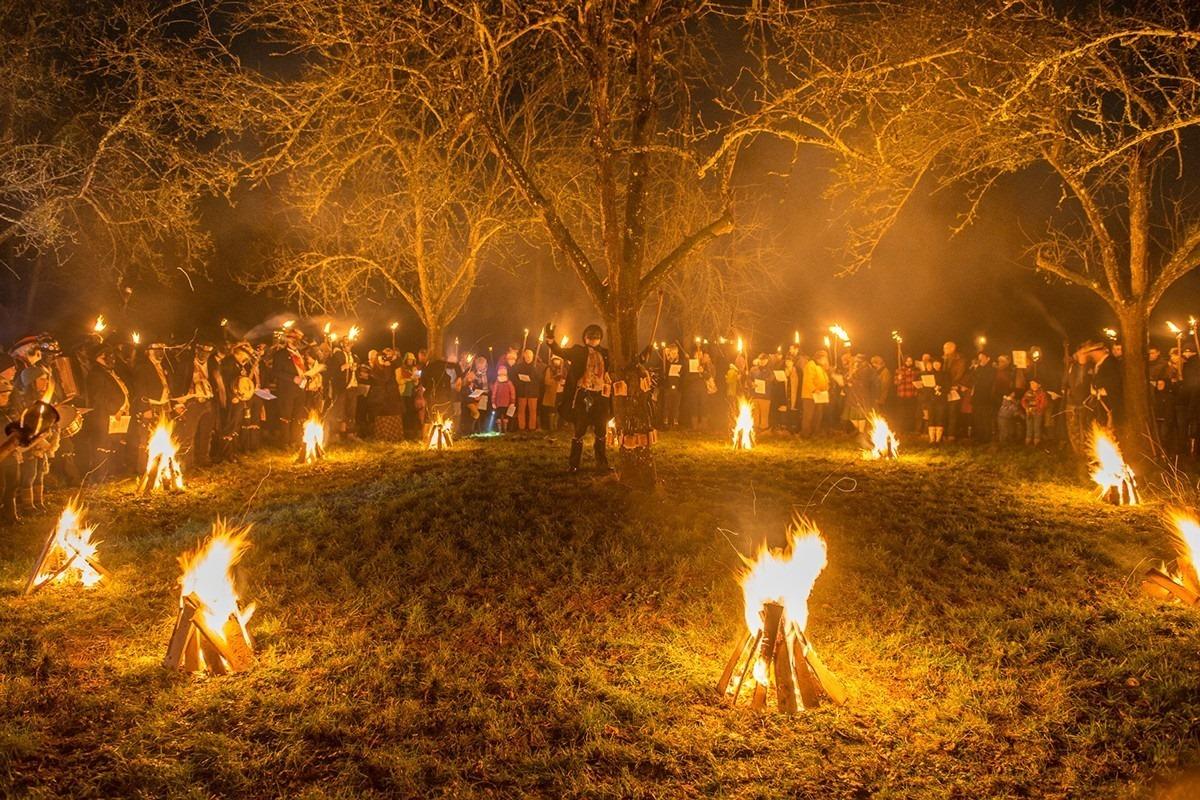
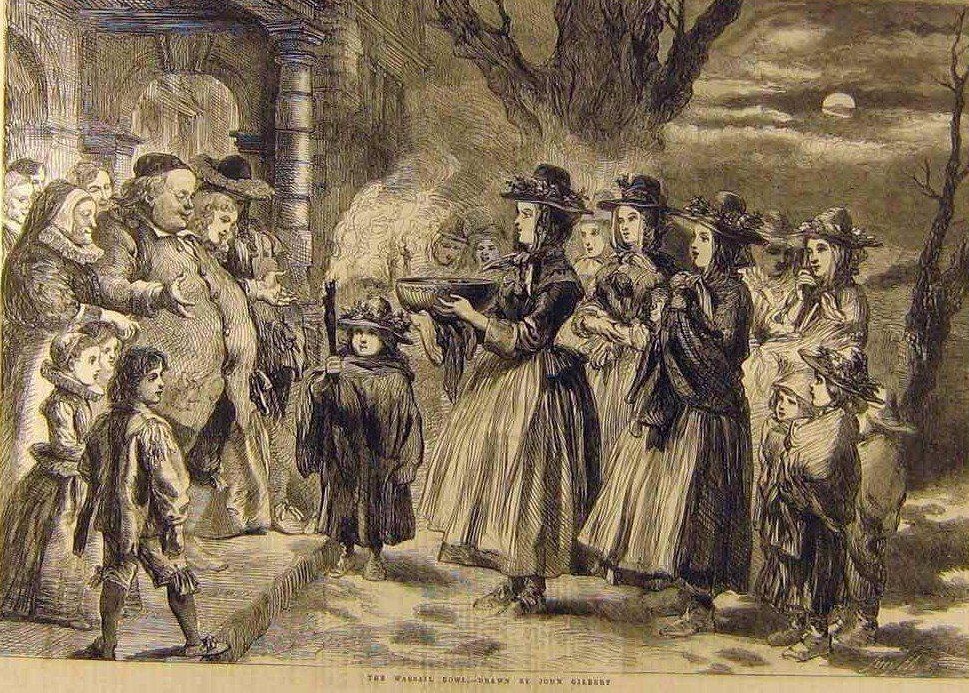 People are often unsure about whether Twelfth Night is 5 or 6 January, and that confusion goes back a very long way. As the 12th-century writer Orm notes here, people often called Epiphany 'Twelfth Day', though it's really the 13th day after Christmas...
People are often unsure about whether Twelfth Night is 5 or 6 January, and that confusion goes back a very long way. As the 12th-century writer Orm notes here, people often called Epiphany 'Twelfth Day', though it's really the 13th day after Christmas...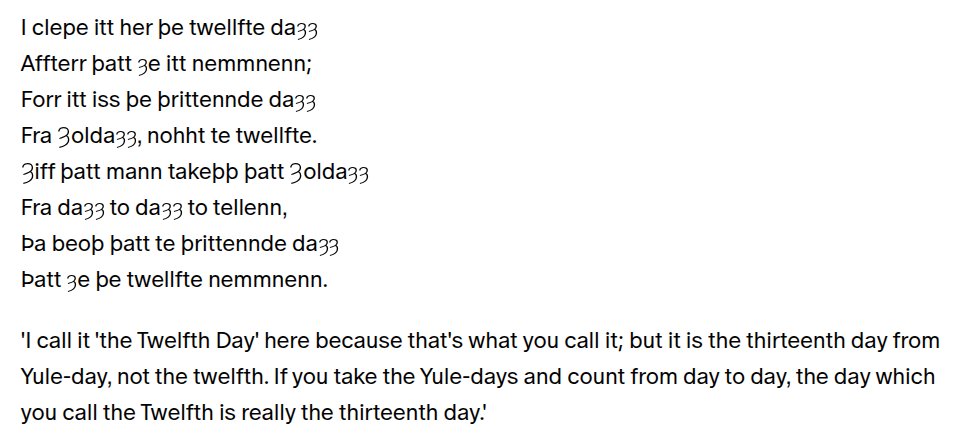
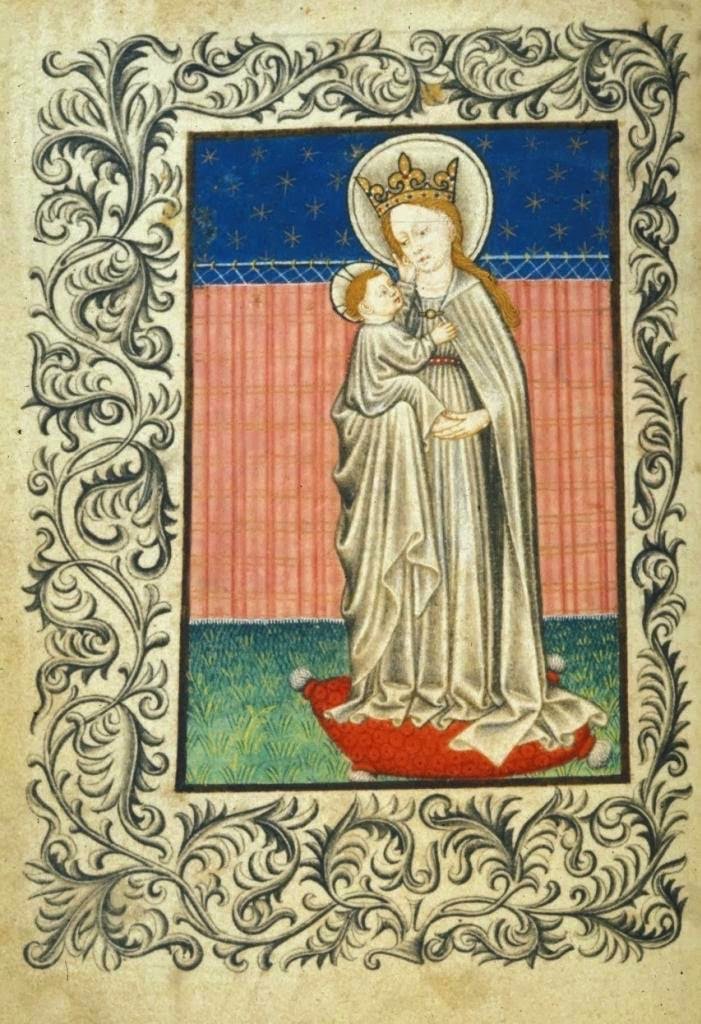
 The name Childermas (like Candlemas, Christmas etc.) dates back to the Anglo-Saxon period: 'cilda mæssedæg' was the 'feast-day of the children'. It appears in the Anglo-Saxon Chronicle, recording the consecration of Westminster Abbey on this day in 1065.
The name Childermas (like Candlemas, Christmas etc.) dates back to the Anglo-Saxon period: 'cilda mæssedæg' was the 'feast-day of the children'. It appears in the Anglo-Saxon Chronicle, recording the consecration of Westminster Abbey on this day in 1065.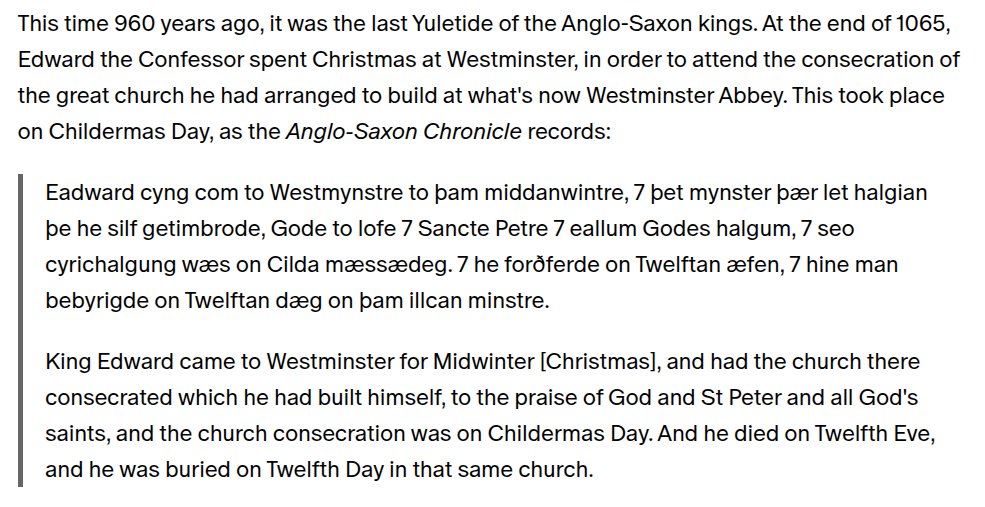
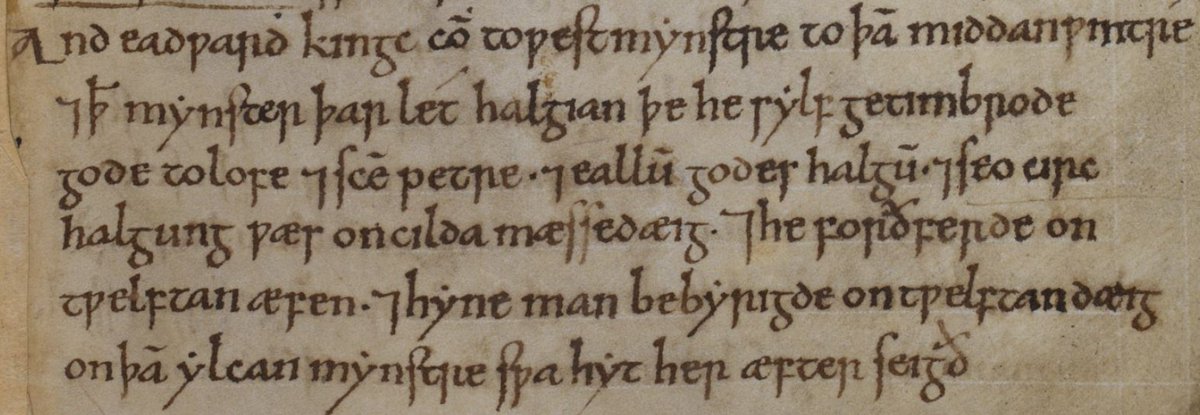
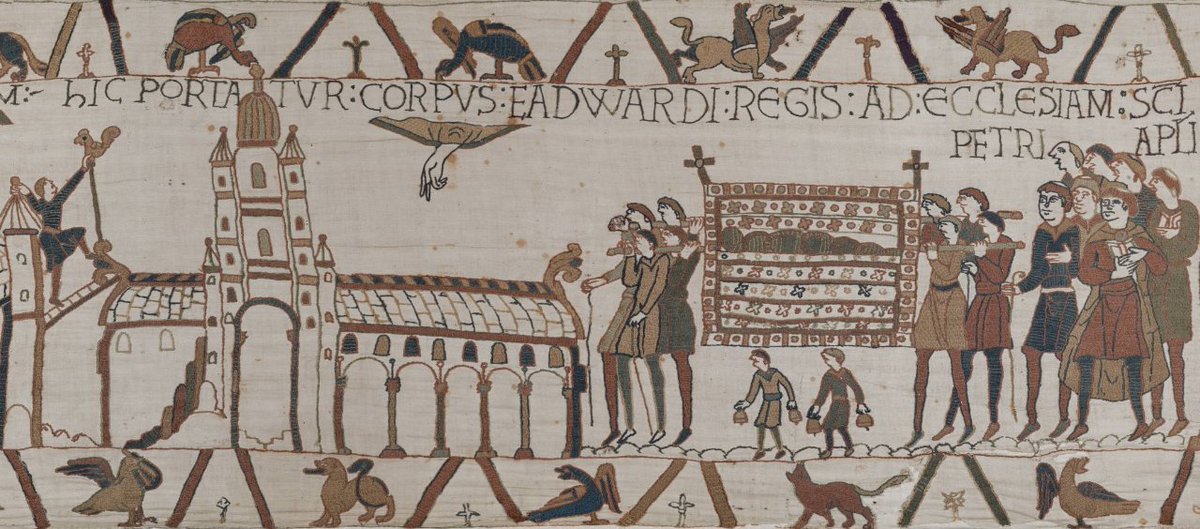

 The start of the O Antiphons, beginning with 'O Sapientia', is often marked in medieval calendars for December (near the goat of Capricorn). It's a rare distinction for a liturgical text - a sign Christmas is coming closer.
The start of the O Antiphons, beginning with 'O Sapientia', is often marked in medieval calendars for December (near the goat of Capricorn). It's a rare distinction for a liturgical text - a sign Christmas is coming closer.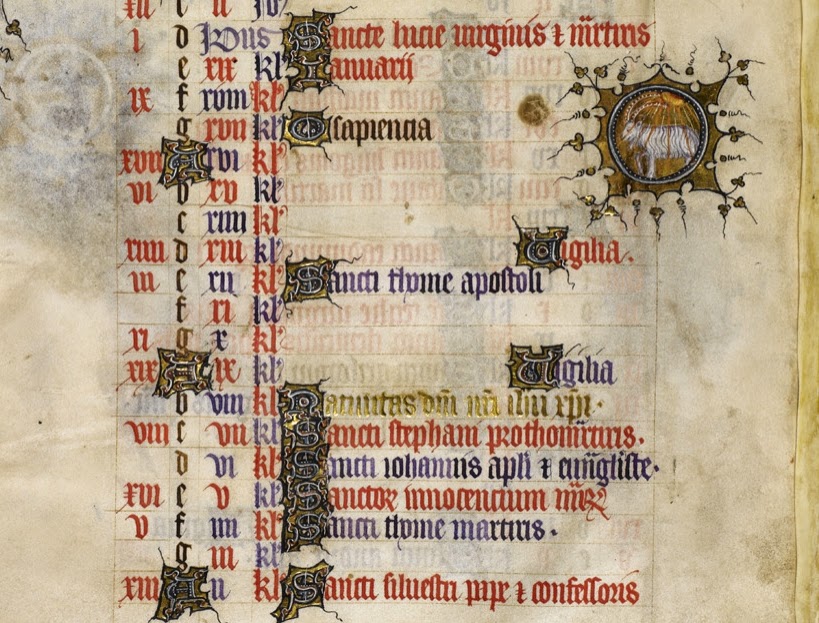
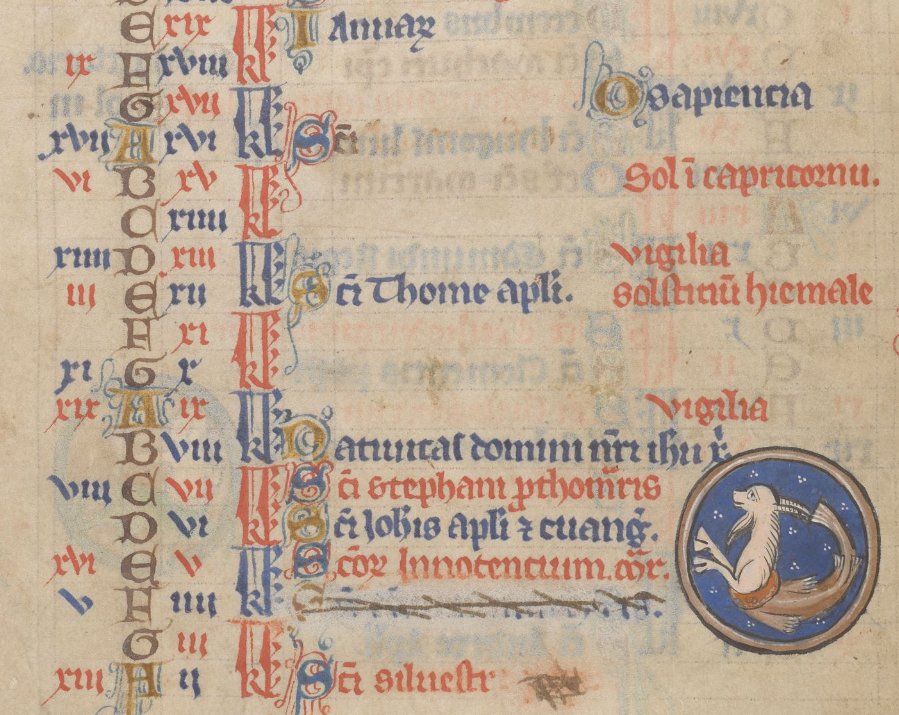
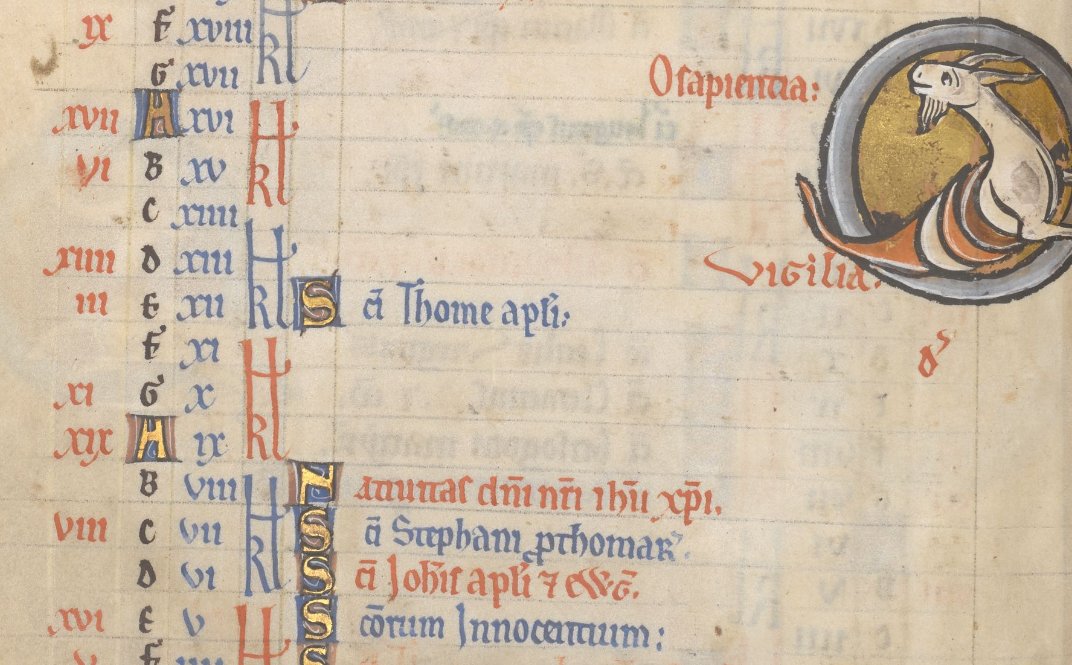
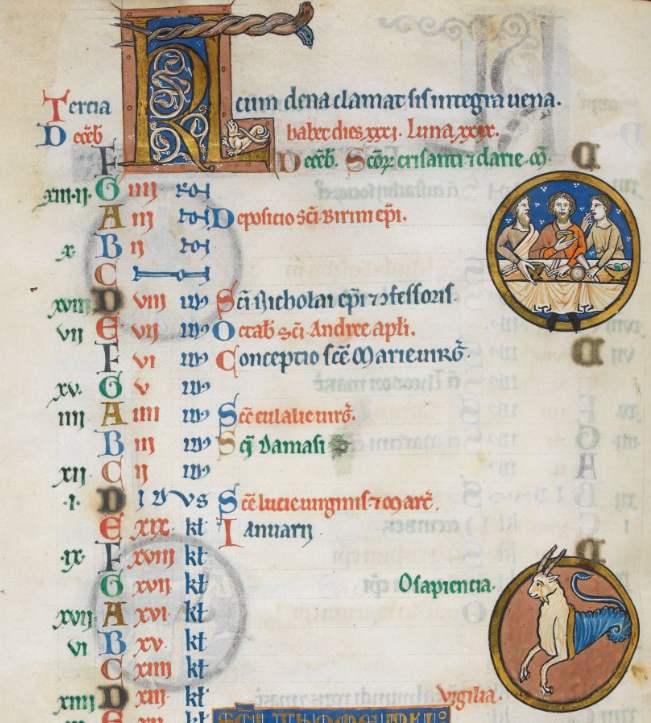

 In medieval art St Michael is often shown holding scales, with which he weighs the souls of the dead. This imagery links him to the autumn equinox, when day and night are balanced, the scales of Libra, and the traditional settling of accounts at Michaelmas patreon.com/posts/high-and…
In medieval art St Michael is often shown holding scales, with which he weighs the souls of the dead. This imagery links him to the autumn equinox, when day and night are balanced, the scales of Libra, and the traditional settling of accounts at Michaelmas patreon.com/posts/high-and…

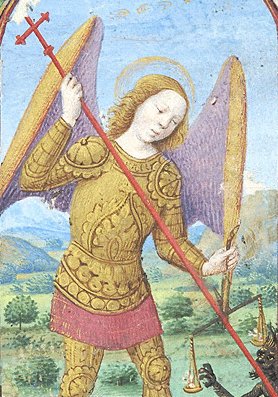

 Image from a 15th-century manuscript digital.bodleian.ox.ac.uk/objects/644538…
Image from a 15th-century manuscript digital.bodleian.ox.ac.uk/objects/644538…

 Easteræfen, 'Easter Eve', was the Anglo-Saxon name for Holy Saturday. A beautiful description of what happened on the day 'when Christ rested dead in the tomb for us', from the 9th-century Old English Martyrology:
Easteræfen, 'Easter Eve', was the Anglo-Saxon name for Holy Saturday. A beautiful description of what happened on the day 'when Christ rested dead in the tomb for us', from the 9th-century Old English Martyrology: 

 For the medieval church, March 25 was the most important date in history: not only the day of Christ's conception, but also the historical date of the Crucifixion. From the eighth day of Creation to the downfall of Sauron - it all happens today. aclerkofoxford.blogspot.com/2017/03/our-la…
For the medieval church, March 25 was the most important date in history: not only the day of Christ's conception, but also the historical date of the Crucifixion. From the eighth day of Creation to the downfall of Sauron - it all happens today. aclerkofoxford.blogspot.com/2017/03/our-la…

 In Anglo-Saxon England, the week of Ash Wednesday seems to have been known as 'Cheese Week' (cyswuce), because it was the last time cheese could be eaten before the start of Lent. A great lost holiday...
In Anglo-Saxon England, the week of Ash Wednesday seems to have been known as 'Cheese Week' (cyswuce), because it was the last time cheese could be eaten before the start of Lent. A great lost holiday...

 A New Year's Day carol from 1642 (sung to the tune of 'Greensleeves')
A New Year's Day carol from 1642 (sung to the tune of 'Greensleeves') 

 The English name Childermas (like Candlemas, Christmas, Lammas etc.) dates back to the Anglo-Saxon period: 'cilda mæssedæg' was the 'feast-day of the children', the Holy Innocents. This Anglo-Saxon Chronicle entry says Westminster Abbey was consecrated 'on cilda mæssedæg', 1065.
The English name Childermas (like Candlemas, Christmas, Lammas etc.) dates back to the Anglo-Saxon period: 'cilda mæssedæg' was the 'feast-day of the children', the Holy Innocents. This Anglo-Saxon Chronicle entry says Westminster Abbey was consecrated 'on cilda mæssedæg', 1065. 

 There was an old tradition that Childermas was a very unlucky day, when no important undertaking should be started and no washing or cleaning should be done. Whichever day of the week it fell upon would be unlucky throughout the coming year. archive.org/details/agloss…
There was an old tradition that Childermas was a very unlucky day, when no important undertaking should be started and no washing or cleaning should be done. Whichever day of the week it fell upon would be unlucky throughout the coming year. archive.org/details/agloss… 

 This is the story of Wulfric's bilingualism miracle. Wulfric and William (who could both speak French) treat Brihtric's frustration as a bit of a joke, but it's hard not to have sympathy with him - so much here about future English class divides.
This is the story of Wulfric's bilingualism miracle. Wulfric and William (who could both speak French) treat Brihtric's frustration as a bit of a joke, but it's hard not to have sympathy with him - so much here about future English class divides.

https://twitter.com/ClerkofOxford/status/1488777083291684868The feast of the Presentation dates back to the 4th century, and in English it's been called 'Candlemas' for over 1000 years (from Anglo-Saxon 'Candelmæsse'). The name comes from the custom of processing with candles on this day, as seen in this image from Bodleian MS. Douce 12.


 'O joy of women, beyond the glory of heaven,
'O joy of women, beyond the glory of heaven,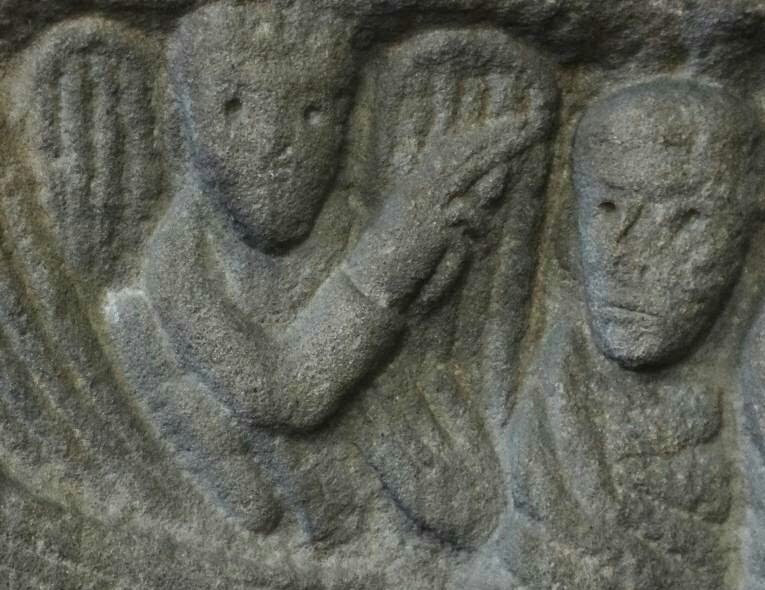

 'For all Cristen saulys pray we:
'For all Cristen saulys pray we:

 These poignant medieval lullabies feel particularly fitting in this year of solitude and grief. Here's a beautiful example for Christmas night: 'As I lay on Yule's Night / Alone in my longing...' corymbus.co.uk/as-i-lay-on-yu…
These poignant medieval lullabies feel particularly fitting in this year of solitude and grief. Here's a beautiful example for Christmas night: 'As I lay on Yule's Night / Alone in my longing...' corymbus.co.uk/as-i-lay-on-yu… 

 St Catherine was especially associated with learning: her legend said that as a young girl she devoted herself to study, and when challenged to debate against 50 philosophers, her arguments won the dispute. She's often shown with a book.
St Catherine was especially associated with learning: her legend said that as a young girl she devoted herself to study, and when challenged to debate against 50 philosophers, her arguments won the dispute. She's often shown with a book.

